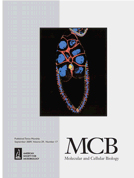- Submit a Protocol
- Receive Our Alerts
- Log in
- /
- Sign up
- My Bio Page
- Edit My Profile
- Change Password
- Log Out
- EN
- EN - English
- CN - 中文
- Protocols
- Articles and Issues
- For Authors
- About
- Become a Reviewer
- EN - English
- CN - 中文
- Home
- Protocols
- Articles and Issues
- For Authors
- About
- Become a Reviewer
Development of T Cells through Co-culture Lymphoid Progenitor Cells with OP9-DL1 Stromal Cells in vitro
Published: Vol 2, Iss 10, May 20, 2012 DOI: 10.21769/BioProtoc.189 Views: 21519

Protocol Collections
Comprehensive collections of detailed, peer-reviewed protocols focusing on specific topics
Related protocols

Functional Phenotyping of Lung Mouse CD4+ T Cells Using Multiparametric Flow Cytometry Analysis
Céline M. Maquet [...] Bénédicte D. Machiels
Sep 20, 2023 4200 Views

T-Cell-Based Platform for Functional Screening of T-Cell Receptors Identified in Single-Cell RNA Sequencing Data Sets of Tumor-Infiltrating T-Cells
Aaron Rodriguez Ehrenfried [...] Rienk Offringa
Apr 20, 2024 6396 Views

Novel Experimental Approach to Investigate Immune Control of Vascular Function: Co-culture of Murine Aortas With T Lymphocytes or Macrophages
Taylor C. Kress [...] Eric J. Belin de Chantemèle
Sep 5, 2025 3547 Views
Abstract
Scientists commonly study the development of lymphocytes in two ways, adoptive transfer of hematopoietic stem cells or progenitor cells into recipient mice and fetal thymic organ culture (FTOC). Both strategies, especially the first one, are still widely used. However there are some limitations of these two methods such as being time consuming, resulting in limited cell yield, and challenges in the technology. During the last decade, OP9 stromal cells co-culture system has been modified to support lymphocyte development in vitro. This alternative way offers researchers a simple, efficient approach to support lymphoid progenitors to develop in vitro. A more important advantage of this system is that a lot of factors involved in lymphocyte development, such as cytokines and Notch signaling pathway, can be manipulated in order to delineate the mechanisms more clearly. This protocol is based on the experience of supporting T cell development by OP9-DL1 stromal cells. As a matter of fact, this system can be used to facilitate other lymphocytes development in vitro, such as B cells and NK cells, depending on the type of stromal cells and different combinations of cytokines.
Stromal cell line, OP9, was derived from the bone marrow of op/op mice that are deficient for macrophage-colony stimulating factor (M-CSF). In order to investigate the role of Notch signaling on the differentiation of T cells in vitro, intensive studies have been recently done through the co-culture system including lymphoid progenitor cells and modified OP9 stromal cells that express Notch ligands such as Delta-like 1, Delta-like 4, or control vector. These derived OP9 stromal cells lines are termed as OP9-DL1, OP9-DL4, and OP9-V or OP9-vector, respectively.
Materials and Reagents
- Cell line: OP9-DL1 stromal cells (OP9-DL1 stromal cells originally made by Dr. J. C. Zuniga-Pflucker. Individual researchers can request this cell line directly from him or from others who got the cell line from him)
- OP9-DL1 Recombinant mouse IL-7 (R&D Systems, catalog number: 407-ML-005 )
- Recombinant mouse Flt-3 ligand (R&D Systems, catalog number: 427-FL-005 )
- Lymphoid progenitor cells
- Alpha medium/ Minimum essential medium (MEM) (Life Technologies, Gibco™, catalog number: 41061-037 )
- Fetal bovine serum (FBS)
- Penicillin-streptomycin-glutamine (Cellgro, catalog number: 30-009-CI )
- 2-Mercaptoethanol (Thermo Fisher Scientific, catalog number: ICN19024290 )
- Phosphate buffered saline (PBS)
- 0.5 M EDTA (Life Technologies, Ambion®, catalog number: AM9260G )
- Culture medium (see Recipes)
Equipment
- Centrifuges
- 10 cm tissue culture dish
- 96-well plate, 48-well plate, or 24-well plate
- Cell culture Incubator
- 15 ml centrifuge tube
- Incubator
- 42 or 80 µm filter
Procedure
- Thaw one tube of OP9-DL1 stromal cells onto a 10 cm dish with 10-12 ml culture medium.
- Passage the stromal cells when the confluence reaches about 70-80%, discard the stromal cells if over confluent. Usually one dish of 70% confluent OP9-DL1 stromal cells can be split into 3-4 dishes.
- Passage 2-3 times before preparation the single layer of stromal cells for co-culture.
- Prepare single layer of OP9-DL1 stromal cells 24 h before the coculture starts (it can be done as early as 48 h before the co-culture or as late as the night before the co-culture experiment).
Note: The purpose is to let OP9-DL1 stromal cell reach 100% confluent before adding the lymphoid progenitor cells. The co-culture system can be performed with 96-well plate, 48-well plate, and 24-well plate. Usually 4 x 104 OP9-DL1 cells are plated onto one well of 24-well plate the day before the co-culture. One well of 24-well plate can hold 1 ml of medium. - Prepare lymphoid progenitor cells by depletion and sorting.
- Prepare mixture of lymphoid progenitor cells and medium containing 1 ng/ml IL-7, and 5 ng/ml Flt-3L. Suck out the old medium from 24-well plate with OP9-DL1 cells and add 1 ml mixture into each well of 24-well plate.
- Change half volume medium after 3-4 days. Carefully take out half volume old medium from the top of the well, and slowly add equal volume of fresh medium containing the same cytokines mentioned in step 6 from the top of the side wall of each well. Try not to disturb the contact between the progenitor cells laid on the bottom of each well with the OP9-DL1 stromal cells. Cell number expansion can be observed at different time points depending on the property of the lymphoid progenitor.
- Harvest the progenitor cells from the co-culture system on day 7, and then transfer appropriate number of cells to new single-layer OP9-DL1 stromal cells that prepared one day before the harvest.
- In order to collect all cells from each well, strongly pipet all medium up and down several times at different locations, transfer the mixture into 15 ml centrifuge tube. Add 0.5 ml 5 mM EDTA (pH 8.0 in sterile PBS) into each well and incubate for 5 min in the incubator, and then pipet up and down several times and combine EDTA with the mixture in 15 ml centrifuge tube. Because OP9-DL1 stromal cells are also detached during the collection, the cell mixture and EDTA have to be filtered with 42 or 80 µm filter (after co-culture for a couple of days, the T lymphocytic progenitor cells touch with OP9-DL1 stromal cells relatively tight).
- Strongly pipets the medium up and down several times at different locations of each well, and then transfer everything from each well to a 15 ml centrifuge tube. In order to harvest all the rest cells, add 0.5 ml sterile 5 mM EDTA (pH 8.0 in PBS) to each well and put the whole 24-well plate in the incubator for 5 min. And then pipet up and down EDTA and combines it with the medium in the 15 ml centrifuge tube. Due to the strong pipetting, almost all the stromals cells are detached from the bottom of the 24-well plate and mixed with T lymphocyte progenitors. In order to remove the contamination of OP9-DL1 stromal cells, filters the medium and ETDA with 42 µM or 80 µM filter because OP9-DL1 stromal cells are much bigger than T lineage lymphocyte).
- The duration of the co-culture depends on two factors, the property of the lymphoid progenitor cells and the end stage of the co-culture. How to determine whether you have the T cells you want to differentiate and you can now stop the culture (usually, T cells development reaches the end point once CD4 and CD8 double positive cells emerge from the co-culture system. The more immature the progenitor cells are, the longer it takes to reach the end point of the co-culture. However it really depends on the special purpose of each study to determine the time point to stop the co-culture. For example, it could take one week or even shorter time window to observe the transition from one stage to another, like DN1 cells to DN2 cells).
Recipes
- Culture medium
Alpha medium/Minimum essential medium (MEM)
15% FBS
1% Penicillin-Streptomycin-Glutamine
15 μM 2-Mercaptoethanol
Acknowledgments
This protocol was adapted from Wang et al., (2009) and Cho and Zuniga-Pflucker (2003). This work was supported by the NIH.
References
- Cho, S. K. and Zuniga-Pflucker, J. C. (2003). Development of lymphoid lineages from embryonic stem cells in vitro. Methods Enzymol 365: 158-169.
- Wang, H. C., Perry, S. S. and Sun, X. H. (2009). Id1 attenuates Notch signaling and impairs T-cell commitment by elevating Deltex1 expression. Mol Cell Biol 29(17): 4640-4652.
Article Information
Copyright
© 2012 The Authors; exclusive licensee Bio-protocol LLC.
How to cite
Wang, H. (2012). Development of T Cells through Co-culture Lymphoid Progenitor Cells with OP9-DL1 Stromal Cells in vitro. Bio-protocol 2(10): e189. DOI: 10.21769/BioProtoc.189.
Category
Immunology > Immune cell function > Lymphocyte
Do you have any questions about this protocol?
Post your question to gather feedback from the community. We will also invite the authors of this article to respond.
Share
Bluesky
X
Copy link









